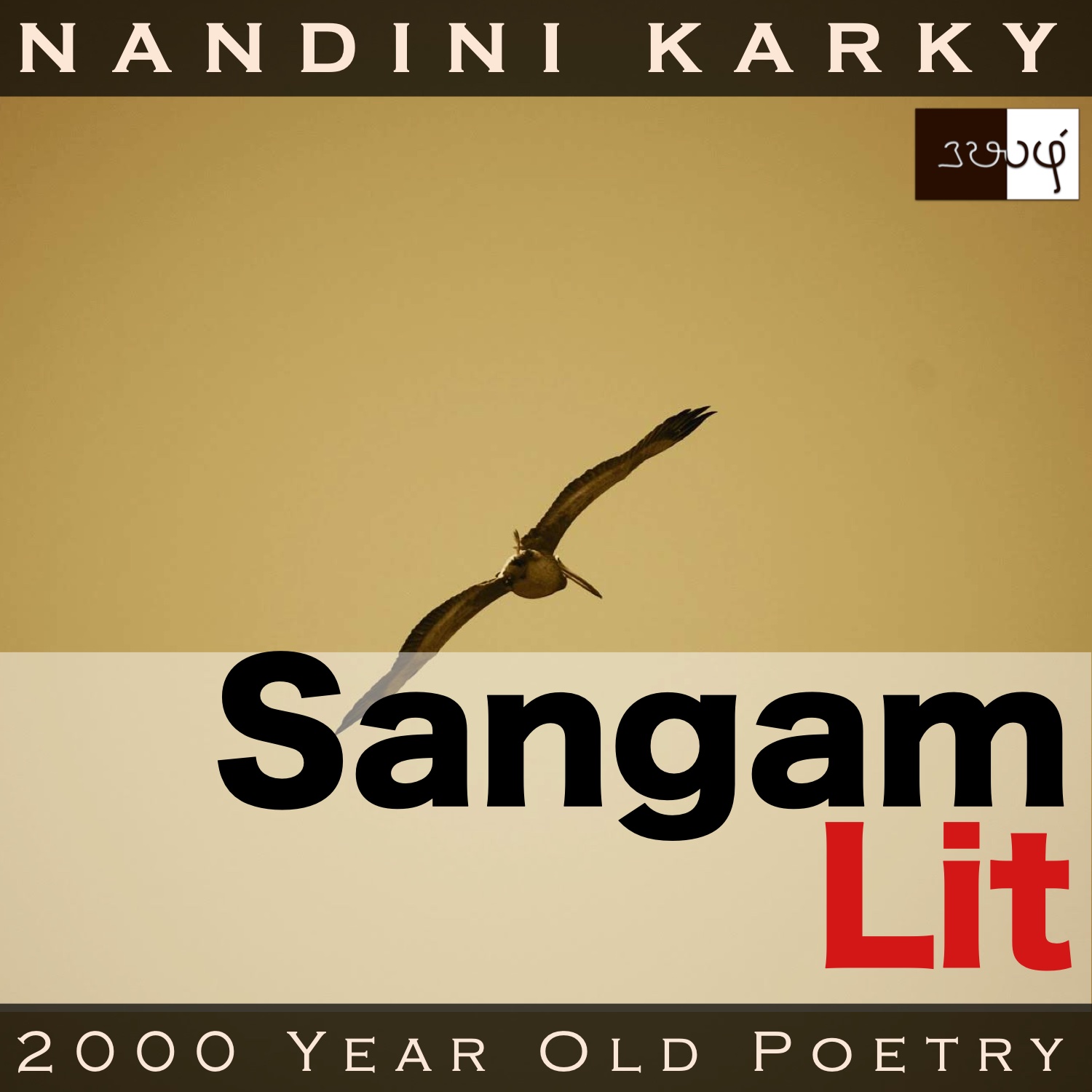Podcast: Play in new window | Download
Subscribe: Apple Podcasts | Spotify | Amazon Music | Android | iHeartRadio | TuneIn | RSS | More

In this episode, we learn of historical incidents in a song on relationships, as depicted in Sangam Literary work, Kurunthogai 393, penned by Paranar. Set in the farmlands of ‘Marutham’, the verse speaks in the voice of the confidante to the lady, passing on a hidden message to the man, listening nearby.
மயங்கு மலர்க் கோதை குழைய மகிழ்நன்
முயங்கிய நாள் தவச் சிலவே – அலரே,
கூகைக் கோழி வாகைப் பறந்தலைப்
பசும் பூட் பாண்டியன் வினை வல் அதிகன்
களிறொடு பட்ட ஞான்றை,
ஒளிறு வாட் கொங்கர் ஆர்ப்பினும் பெரிதே.
‘Days of embrace, few; Sounds of slander, more’ is the cryptic core of this verse. The opening words ‘மயங்கு மலர்க் கோதை’ meaning ‘a garland stitched with a variety of flowers’ talks about the custom of people adorning themselves with floral garlands in Sangam times. ‘முயங்கிய நாள் தவச் சிலவே’ meaning ‘the days of embrace are very few’ echo the first part of the core thought. In ‘கூகைக் கோழி வாகைப் பறந்தலை’ meaning ‘an owl hen at the battlefield of Vaagai’, we see how an element of nature is linked to a place and a war. When war is mentioned, can historical characters be absent? As predicted, we see ‘பசும் பூட் பாண்டியன்’ talking about ‘a Pandiya king, who adorned himself with well-etched gold jewels’ and his ‘worthy and powerful war chief Athikan’ in ‘வினை வல் அதிகன்’. Another group of historical persons also appear in ‘ஒளிறு வாட் கொங்கர்’ meaning ‘Kongars with shining swords’. Ending with the words ‘ஆர்ப்பினும் பெரிதே’ meaning ‘more than the roar’, the verse hints of the second part of the core thought and invites us to learn more.
This poetic structure of ‘few’ and ‘more’ reminds strongly of another Sangam poem, Kurunthogai 328, by the same poet. The context here reveals that the man and lady were leading a love relationship and the man was trysting with the lady for a long while. One day, when the man approaches the lady’s home for his tryst, pretending not to notice him, but making sure he’s in earshot, the confidante says to the lady, “Days when the lord embraced you, crushing your garland fused with different flowers, are a precious few; In the battlefield at ‘Vaagai’, where owls roost, Athikan, the competent commander of ‘Pasum Poon Pandiyan’, perished, along with his elephant. Seeing this, the enemy ‘Kongars’ with shining swords roared. The slander that spreads in town now is much louder than that roar!” With these words, the confidante informs the man that slander had spread in town about the man’s relationship with the lady and that it was high time he sought her hand in marriage.
Time to delve into the nuances. The confidante starts by mentioning how the days of companionship with the man were very few for the lady. Then, she moves to detail a battlefield in the town of ‘Vaagai’, where owls were the only beings that lived. When there’s a battle raging, how can it be teeming with life? These birds that stay out of the way during the day when armies clash seems to be the only survivors there. Returning, we see a dashing officer in action. This is Athikan, the commander-in-chief of the renowned Pandiya King, ‘Pasum Poon Paandiyan’. His valour and strength notwithstanding, Athikan falls dead on the battlefield along with his elephant. Upon seeing their enemy lying lifeless on the field, the warring ‘Kongars’ with flashing swords let out an uproarious cry. After detailing these historic incidents, the confidante concludes by saying that the uproar owing to slander in town just then, was much greater than this celebratory cry of the ‘Kongars’!
The confidante seems to be simply telling the man that there was a lot of slander in town and this was ruining the lady’s health. So, the right course of action for the man was to give up temporary trysting and seek the lady’s hand in marriage. It’s curious how for something as intimate and domestic as a marital concern, Sangam poets think it so natural to include similes from battlefields and historic events. That shows an expansive thought that does not box knowledge into strict compartments. Rather, they see how everything is connected with everything else, and that philosophy is the fountainhead of creativity, as can be witnessed by this prolific collection of thoughts from two thousand years ago.




Share your thoughts...